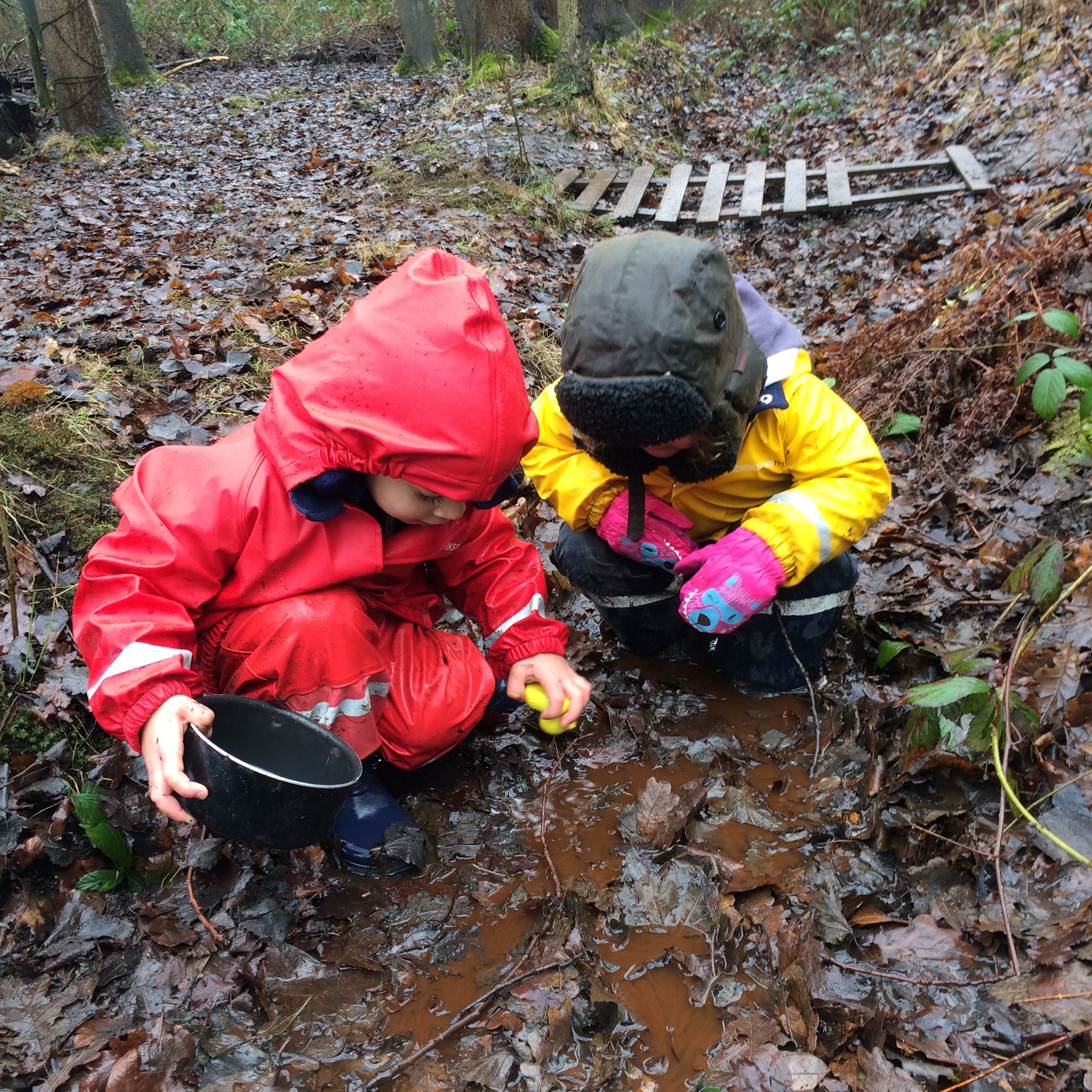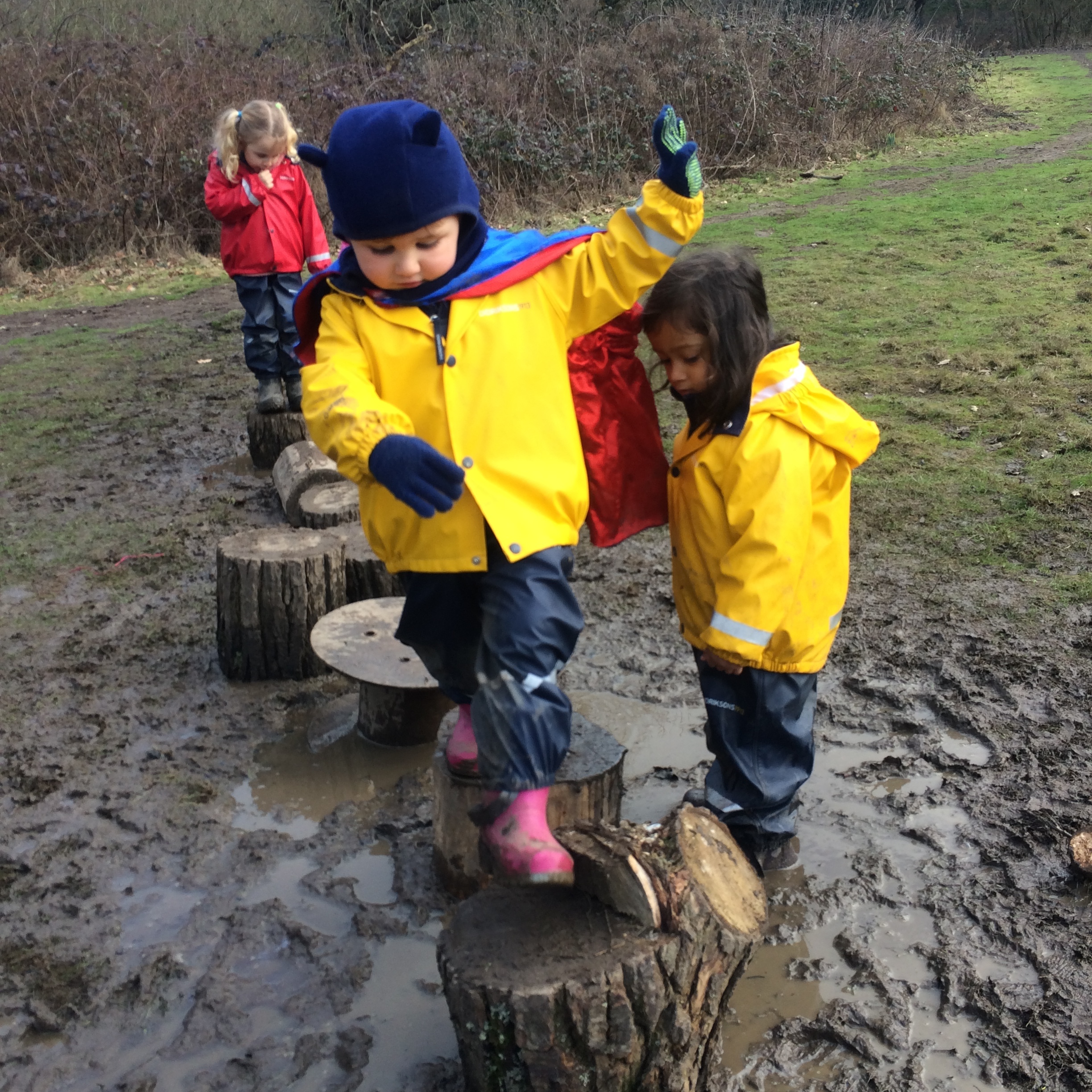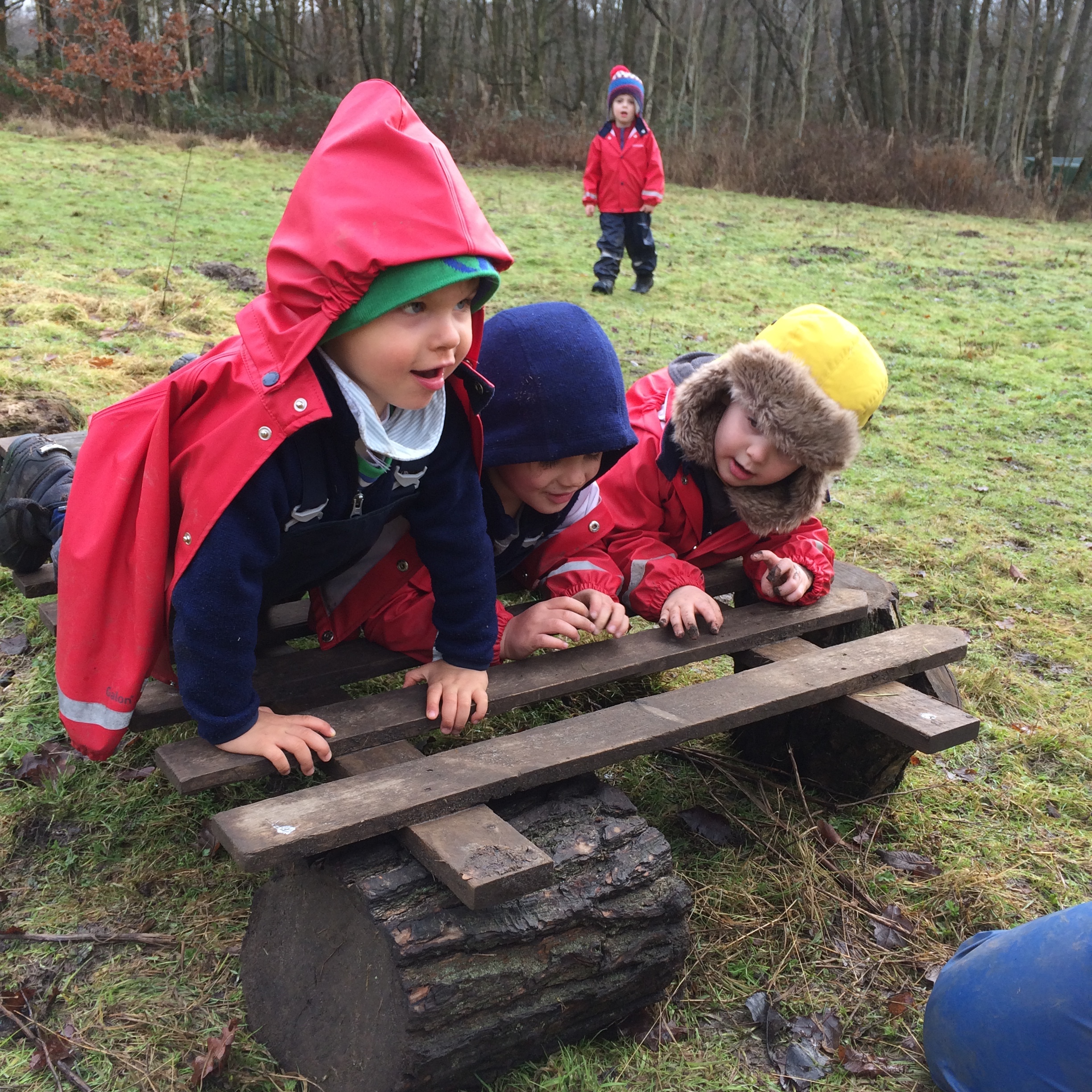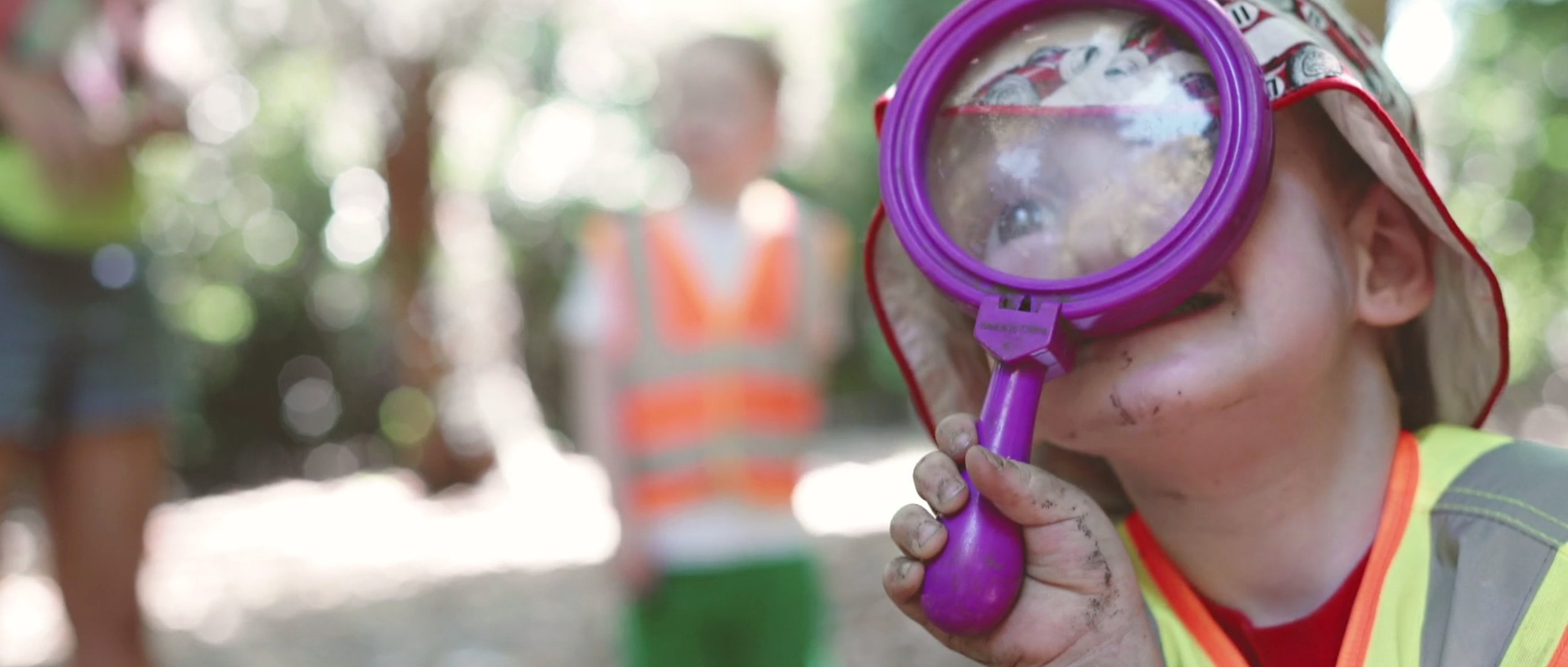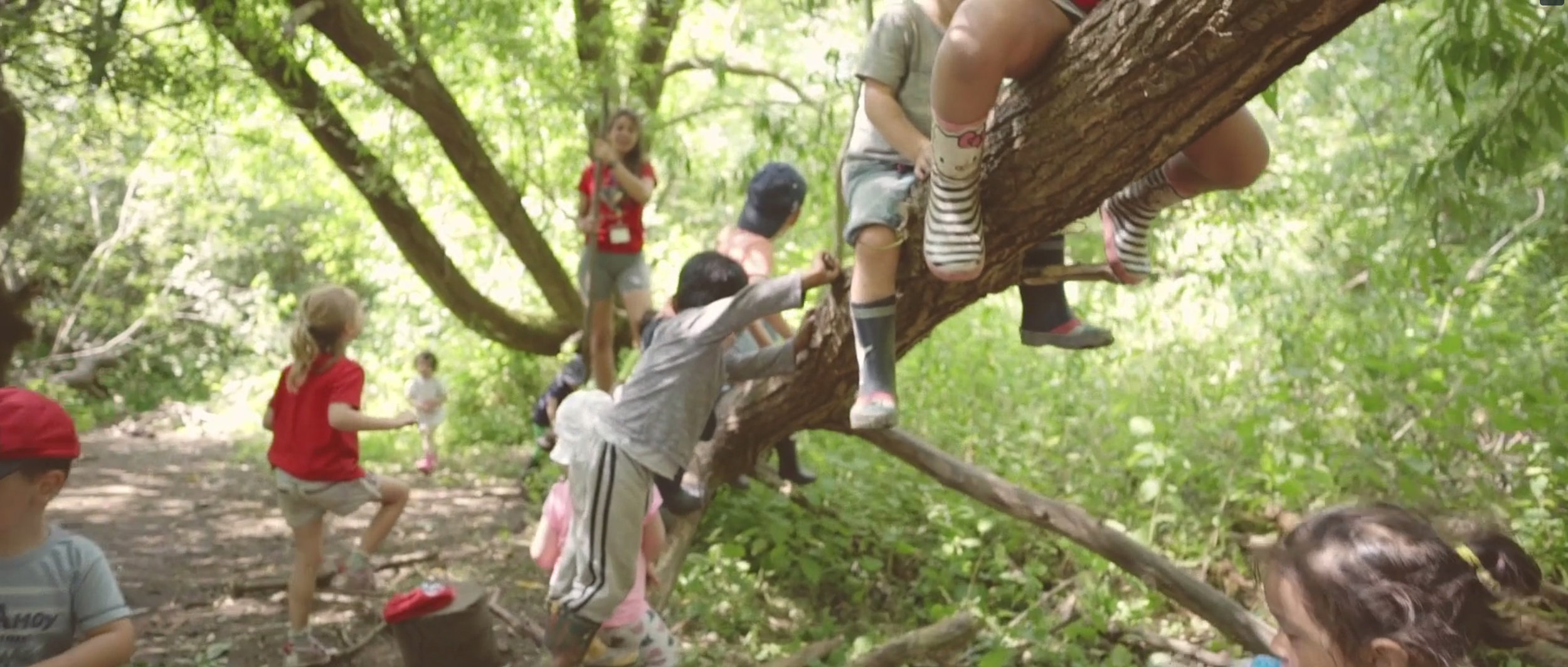As part of a recent parent survey, we asked parents if they could change one thing about Little Forest Folk, what would it be? The vast majority responded ‘nothing’, which is always lovely to hear.
There were however a small group of parents who responded with ‘do some learning’. This was an interesting response as it made me wonder how well we convey our pedagogy to our families. We discuss our style of learning and our ethos in depth regularly with our staff, but when speaking to our parents are we focusing less on our pedagogy?
We’ve decided to address this question of ‘doing’ learning. In our opinion, learning isn’t something you ‘do’. It’s something that happens constantly for children, especially in the early years. A popular misconception is that children need to be sitting down, participating in an adult-directed focus activity to be learning. We believe this couldn’t be further from the truth.
Learning happens everywhere: at nursery/school, at home, out in the world. The most valuable learning that occurs is when curiosity is sparked and children are inspired by their environment and interests to explore and investigate themselves. We believe when you sit children down and direct them to focus on a task that you as an adult have decided will be interesting to them, you’re already starting on the back foot. You are potentially risking pulling children away from learning and interests they are deeply engaged in, to sit with you and participate in an activity they may have no interest in. We want to help children to understand that learning is a lifelong process that happens everywhere they go. We don’t want them to repeat a comment one of our school age holiday campers once made – ‘But if you just have fun and play all day, when do you learn?’. Our play IS our learning. And learning is FUN!
There is enormous evidence to support this. If you’d like an inspiring read into why children should be given freedom to learn their own way then we highly recommend Peter Gray’s ‘Free to Learn’. Alternatively, if you’ve time to read through a bit more academically focused research and evidence bases for play as learning, then we’d recommend visiting the Cambridge University’s research department into play. The Cambridge Centre for Research on Play in Education, Development & Learning (PEDAL) https://www.educ.cam.ac.uk/centres/pedal/ conducts intensive research attempting to affect government policy. Their discussions on play-based pedagogies are grounded in research on cognitive developmental psychology and are extremely interesting.
Our children are growing up in a world where soft skills are going to be far more highly valued and useful than academic skills. Let’s not hide from the fact that we have left the industrial era and are now in the innovation era.
Creativity, innovation, problem-solving and critical thinking – these are going to be the most sought-after skills. And these are skills that it is very difficult to ‘teach’ in a conventional sitting down, adult-directed focus activity. We need to allow children to explore, to investigate, to try and to fail, then reconsider their options and try again. We need to give them freedom of time and space to learn how to think, and to think of how they love to learn.
Empathy, compassion, flexibility, the ability to collaborate and strong communication skills are being honed in the forest every single day. And we are pretty confident that these skills the children are learning so well are skills that will serve them far greater in their future life than calculus ;-)
We know that it looks as though we have fun, laugh, run, skip, climb and experience joy all day in the forest. We do! But behind this joy, behind the laughter and climbing is an intense development of curiosity, of encouraging self-motivation and never allowing the fire for learning in our children to be extinguished. Not even for a single second.
Don’t make the mistake of thinking children who play all day aren’t learning anything because there are no worksheets, no phonics programmes or carpet time. The reality is almost the opposite. They are learning everything.
Thank you, Little Forest Folk!


